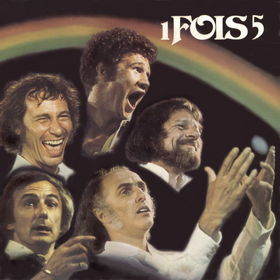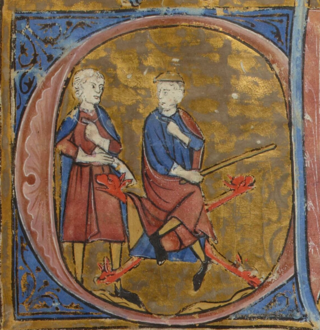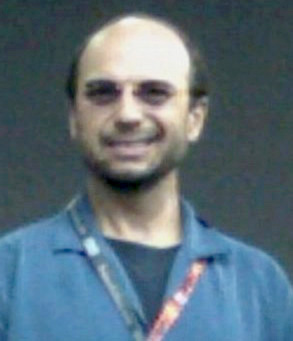
Quebec French, also known as Québécois French, is the predominant variety of the French language spoken in Canada. It is the dominant language of the province of Quebec, used in everyday communication, in education, the media, and government.

Saint-Jean-Baptiste Day, also known in English as St John the Baptist Day, is a holiday celebrated on June 24 in the Canadian province of Quebec. It was brought to Canada by French settlers celebrating the traditional feast day of the Nativity of Saint John the Baptist. It was declared a public holiday in Quebec in 1925, with publicly financed events organized province-wide by a Comité organisateur de la fête nationale du Québec.

René Lévesque was a Canadian politician and journalist who served as the 23rd premier of Quebec from 1976 to 1985. He was the first Québécois political leader since Confederation to seek, through a referendum, a mandate to negotiate the political independence of Quebec. Starting his career as a reporter, and radio and television host, he later became known for his eminent role in Quebec's nationalization of hydro-electric companies and as an ardent defender of Quebec sovereignty. He was the founder of the Parti Québécois, and before that, a Liberal minister in the Lesage government from 1960 to 1966.
As a cosmopolitan province, Quebec is a home to varied genres of music, ranging from folk to hip hop. Music has played an important role in Quebecer culture. In the 1920s and '30s, singer/songwriter Madam Bolduc performed comedic songs in a folk style with Irish influences. Quebec's popular artists of the last century include Félix Leclerc (1950s), Gilles Vigneault (1960s–present), Kate and Anna McGarrigle (1970s–present) and Céline Dion (1980s–present).

Gilles Vigneault is a Canadian poet, publisher, singer-songwriter, and Quebec nationalist and sovereigntist. Two of his songs are considered by many to be Quebec's unofficial anthems: "Mon pays" and "Gens du pays", and his line Mon pays ce n'est pas un pays, c'est l'hiver became a proverb in Quebec. Vigneault is a Grand Officer of the National Order of Quebec, Knight of the Legion of Honour, and Officer of the Ordre des Arts et des Lettres.

The 1979 Canadian federal election was held on May 22, 1979, to elect members of the House of Commons of Canada of the 31st Parliament of Canada. It resulted in the defeat of the Liberal Party of Canada after 16 years in power, 11 of them under Prime Minister Pierre Trudeau. Joe Clark led the Progressive Conservative Party to power but with only a minority of seats in the House of Commons. The Liberals, however, beat the Progressive Conservatives in the overall popular vote by more than 400,000 votes. Taking office on the eve of his 40th birthday, Clark became the youngest prime minister in Canadian history.
Fabien Roy was a Canadian politician who was active in Quebec in the 1970s. Roy was elected to the National Assembly of Quebec and the House of Commons of Canada, and advocated social credit theories of monetary reform.

Paul Piché is a singer-songwriter, environmentalist, political activist and Quebec sovereigntist.

Gaston Ghrenassia , known by his stage name Enrico Macias, is a French singer, songwriter and musician of Algerian Jewish descent.

Marjolène Morin, professionally known as Marjo, is a Canadian singer-songwriter from Quebec.
There are increasing differences between the syntax used in spoken Quebec French and the syntax of other regional dialects of French. In French-speaking Canada, however, the characteristic differences of Quebec French syntax are not considered standard despite their high frequency in everyday, relaxed speech.
Sagesse is a volume of French poetry by Paul Verlaine. First published in 1881, it was important in the symbolist and modernist movements. The subject matter of these poems deals with themes relating to maturing.

The album 1 fois 5, released in 1976, includes the greatest hits of the artists Robert Charlebois, Gilles Vigneault, Claude Léveillée, Yvon Deschamps and Jean-Pierre Ferland, interpreted on Mount Royal on Saint-Jean-Baptiste Day.

Guillaume le Vinier (c. 1190–1245) was a cleric and trouvère, one of the most prolific composers in the genre. He has left compositions in all the major subgenres of trouvère poetry: chansons d'amour, jeux-partis, a lai, a descort, a chanson de mal mariée and a ballade. He wrote Marian songs and even an imaginary dialogue with a nightingale. His work can be dated with some precision: the poem "En tous tens" is quoted in the Roman de la violette, which was written around 1225.

Patriotic music in Canada dates back over 200 years as a distinct category from British or French patriotism, preceding the first legal steps to independence by over 50 years. The earliest, "The Bold Canadian", was written in 1812.
Henri Betti, born Ange Betti, was a French composer and a pianist.
Anne Renée is a Canadian pop singer who rose to fame in Quebec in the 1970s.
Raymond Lévesque was a Canadian singer-songwriter and poet from Quebec. One of the pioneers of the chansonnier tradition in Quebec, he was best known for writing "Quand les hommes vivront d'amour", one of the most famous pop standards in French-language popular music.

Michel Rivard is a singer-songwriter and musician from Quebec, born in Montreal. His father, Robert Rivard, was an actor. Michel began his career at an early age appearing in a Canadian television series and in TV commercials.











